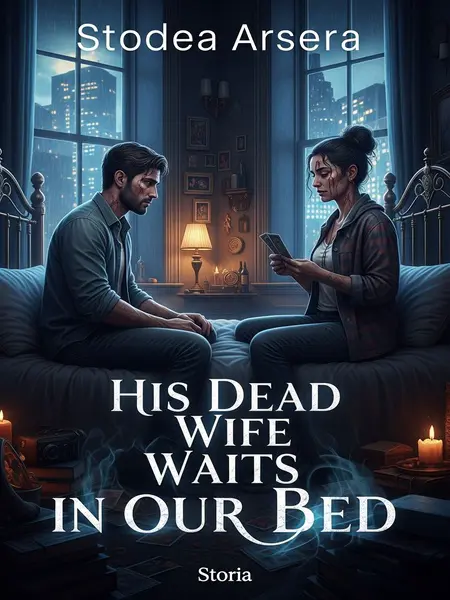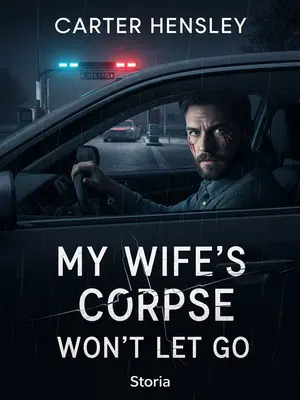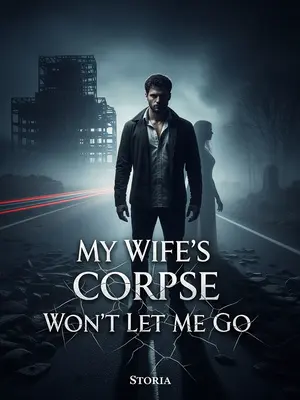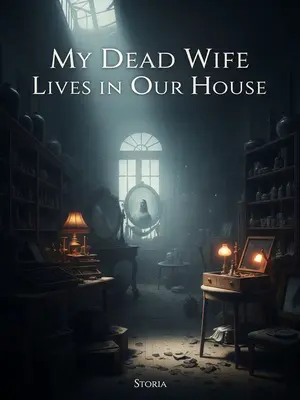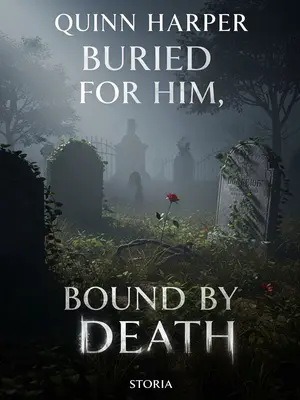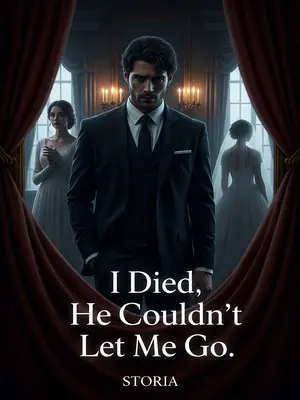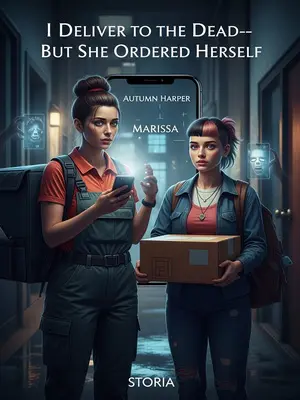Chapter 2: The Shadow Line
My last name is Whitaker, just like my grandpa.
The Whitaker name has a long, rambling history down in West Virginia. Grandpa used to joke that our ancestors could trace their roots back to moonshiners and circuit preachers, and maybe there’s some truth to that. He’d flash that gap-toothed grin and say, “Whitaker—like the creek, not the bourbon.” It always got a laugh, especially from the old-timers.
When Grandpa was alive, he took me everywhere with him. We never stayed in one place for long. Wherever we went, we made a living by setting up a tarot and house blessing booth.
We’d load up the old blue Chevy, throw in our battered table, a stack of tarot decks, and his collection of glass jars filled with who-knows-what. Sometimes we’d crash at a friend’s house in Ohio, other times sleep in the truck bed under the stars. I was homeschooled on the road, learning to read palms and pack up quick when the weather turned bad. Grandpa would always say, “The road’s just another kind of classroom.” We’d stop at gas stations with hand-painted signs, eat cornbread from roadside diners, and listen to the radio crackle with country ballads as we drove.
Later, Grandpa passed most of these skills on to me, and now they’re my livelihood too.
His hands were rough as river rocks, but gentle when he shuffled the cards. He taught me how to listen—really listen—not just to what people said, but to what they didn’t say. When he got sick, he made me promise to never turn my back on someone in trouble. "You’re a Whitaker," he’d say. "You help folks, but you don’t get taken for a fool."
Grandpa always said: every job has its price. Depending on the person and the problem, the fee is never the same.
He had this way of looking folks over, taking in the scuffs on their boots, the way they held their shoulders. He’d lean in, tap his temple, and say, “Every problem’s got a price tag. It’s up to you to figure out who can really pay.” It was part empathy, part survival.
Charge more to the wealthy, less to the struggling—but never work for free.
He’d clap me on the shoulder, reminding me, “Nothing’s free, kid. Even kindness costs something.” If a client tried to pay with promises, Grandpa would just shake his head and send them on their way. He said that’s how you kept your work pure and your conscience clear.
Yet there’s one kind of person I have to refuse payment from: someone whose death is near.
He called it "taking ghost money," and he told me it stains your soul. "You never want the dead owing you," Grandpa warned. “That’s a debt you don’t want collected.” I took it to heart, and so did every other Whitaker before me.
You can’t take money from someone about to die—that’s the rule.
It’s not written in any manual, but you feel it in your bones. Grandpa said, “If you ever feel the air get thick, and you see that shadow behind their eyes—send them away empty-handed. Or better yet, send them away with a prayer.”
Since Grandpa passed away, I’ve always stuck to these rules. That is, until one evening, when a haggard-looking man showed up at my booth.
The night was cold, and the wind off the river cut through the parking lot like a knife. I was packing up my sign, shoving the last of my tip cash into an envelope, when he strode over, moving fast but looking like he hadn’t slept in weeks. His suit was sharp enough to land him a spot in a law office downtown, but his eyes were red-rimmed and haunted.
This man was dressed sharp, his hair perfectly styled. He looked a little over thirty—the picture of success.
His shoes were polished, his watch expensive. Under different circumstances, he could’ve been pitching real estate or leading a board meeting. But the way he clutched his coat told a different story. Folks like him don’t come to a table like mine unless something’s real wrong.
These days, most folks who come for readings are older men and women. I don’t make much from them—just enough to get by. So when someone like this showed up, he caught my eye right away.
Truth is, I’d been scraping by all week—just covering the rent for my tiny studio above the bakery, surviving off diner coffee and day-old bagels. Seeing a man in that kind of suit felt like payday walking in from the cold.
He looked like he could pay.
Maybe enough for groceries, maybe enough to finally fix the heater in my car. My hands itched, just thinking about it. But something about his aura gave me pause—the air seemed to thicken, and my scalp prickled, the way it does when a thunderstorm rolls in.
But as soon as he sat down at my booth, I couldn’t help but frown. I caught sight of several dark streaks flashing across the center of his forehead, crisscrossed—these are the markings of the funeral bell.
My grandpa called it "the shadow line." It was as if someone had drawn a lattice of soot across his skin. Some folks might call it superstition, but I’d seen enough to know when not to doubt my gut. The man’s hands shook a little as he placed them on the table.
In other words, his time was almost up. Within three days, disaster would strike, and his death would be tragic.
There’s a chill that creeps into my bones when I see a mark like that—like a warning bell only I can hear. Three days was nothing. By the weekend, this man would be a memory, and all the money in his wallet wouldn’t mean a thing.
Strangely, though, his features also showed signs of a long life: high, full cheekbones, a rounded nose tip, and a solid nose bridge. I couldn’t help but wonder—had he tangled with something not of this world?
It didn’t add up, and in my line of work, anything that doesn’t add up is bad news. Maybe he’d been lucky once and unlucky now. Or maybe he was mixed up in something way beyond my usual territory—something that blurred the lines between life and death.
“I want you to read my wife’s fortune,” he said.
His voice was smooth, but there was an edge to it, as if he was barely holding himself together. The words came out a little too fast, like he’d rehearsed them all day and couldn’t wait another second to let them go.
“For what reason?” I asked.
I kept my tone businesslike, but inside I was wary. Most folks come for themselves, not for someone else—especially not a spouse. There was a story here, and I needed to get it out in the open before anything else.
“For... confusion,” the man hesitated, then replied.
He glanced down at his hands, twisting his wedding ring. For a moment, his confidence cracked, and what was left looked raw and desperate.
I nodded and asked him for his wife’s birth details. Although I was surprised he wasn’t asking for himself, I didn’t mention what I’d seen.
That’s the unwritten agreement—never offer more than you’re asked. Sometimes folks aren’t ready to hear the truth, and in this business, you learn to keep your cards close until it’s time.
If the client doesn’t ask, I can’t take the initiative to say—that’s another rule.
Another of Grandpa’s lessons: "Don’t go handing folks trouble they didn’t ask for. They won’t thank you for it."
When I received the birth details, I was stunned. After a quick calculation, I got angry. I put down my hand and stared at him, sharp as a blade.
I’d learned to hide my emotions behind a poker face, but this time, it slipped. My gut twisted as I realized what he’d done. My pulse thudded in my ears. Was he testing me, or was this some kind of cry for help? No reader likes to be played for a fool.
“Are you messing with me? She’s already passed, so why are you giving me her birthday for a reading?”
My voice was sharper than I meant, echoing across the empty parking lot. It was as if he’d just tried to hand me a ticket to a funeral disguised as a party invitation. I wasn’t having it.
I immediately told him to leave. The man was startled at first, then his expression changed. His mouth opened slightly—he looked both surprised and like he’d found hope.
He lingered, eyes darting to my hands as if searching for a sign that I’d heard him wrong. Instead of getting angry, he seemed relieved. Maybe, for the first time, someone had called his bluff.
He didn’t leave. Instead, he apologized quickly and explained why he wanted to use his late wife’s birth details for a reading.
His voice broke a little as he spoke, the words tumbling out in a rush. I could tell this was a man desperate for answers, even if it meant breaking every unspoken rule in the book.
